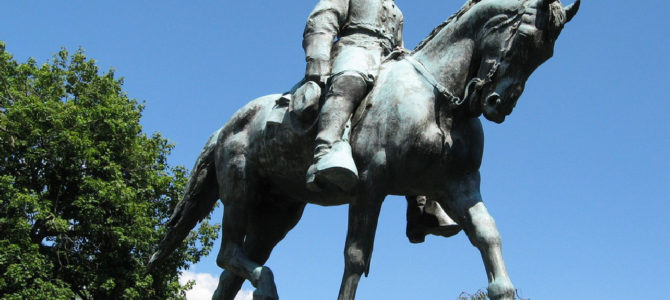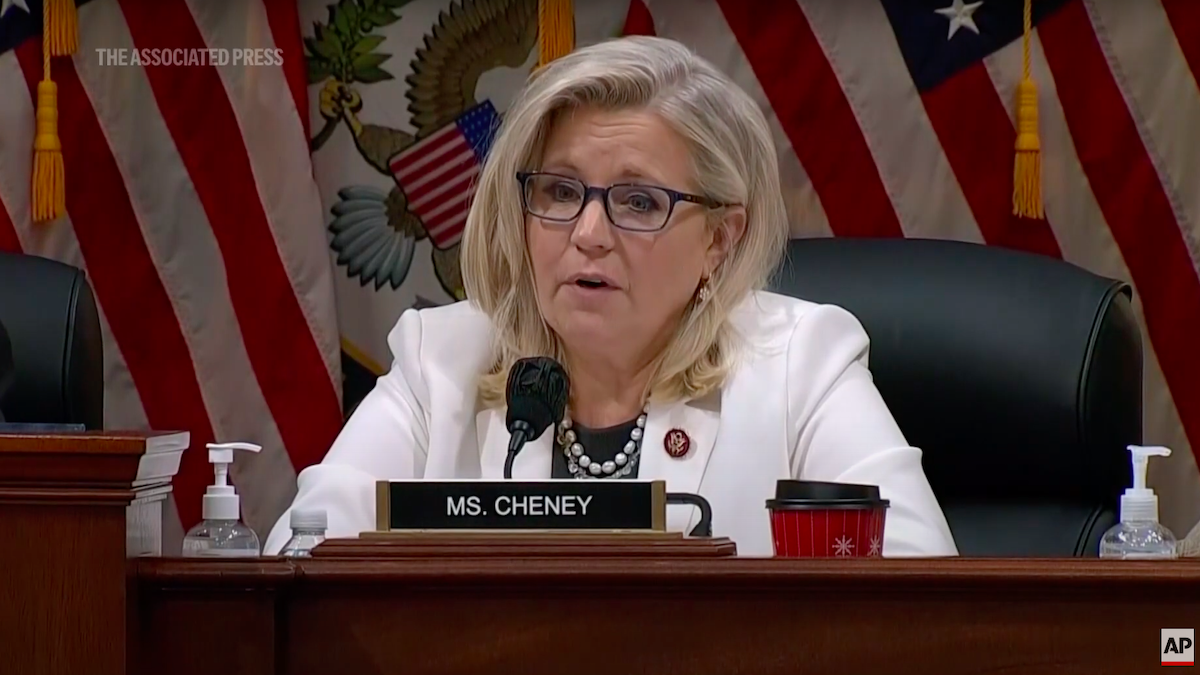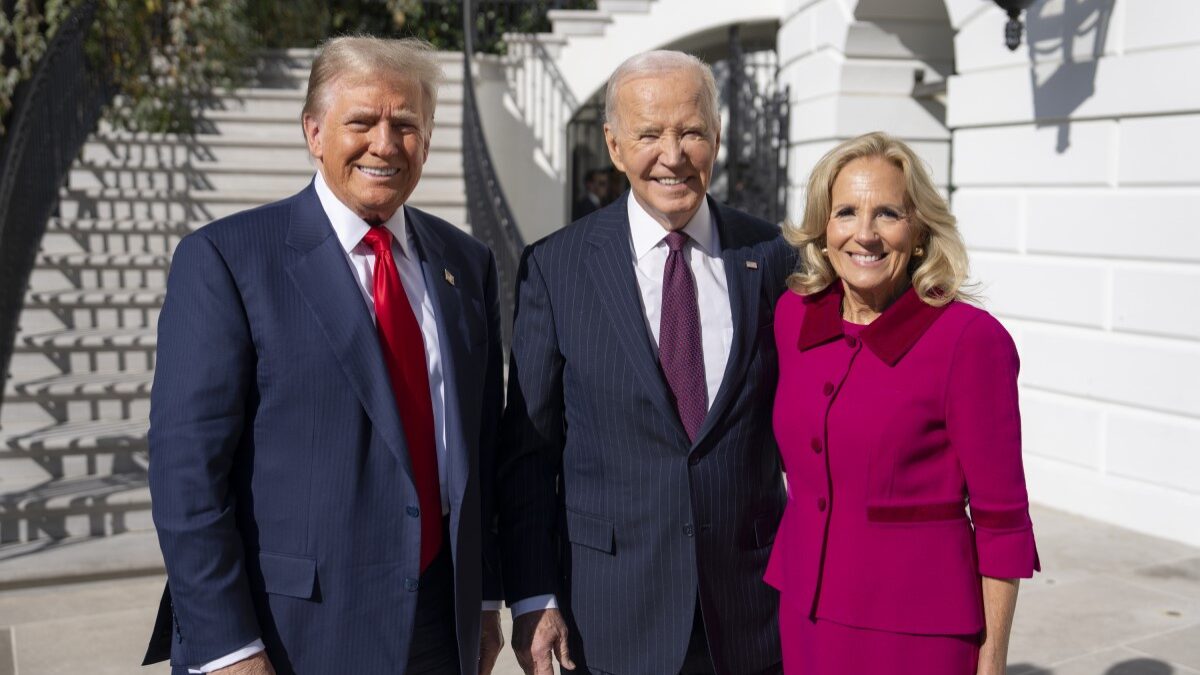
Let’s get something out of the way: Charlottesville is not about Confederate statues or Robert E. Lee or the Civil War or American history. What happened on Friday night and Saturday is about power, specifically about forcing the great mass of Americans to choose sides in a zero-sum clash between contemporary American versions of Weimar gangs.
The Left’s damnatio memoriae campaign to tear down Confederate statues shares something in common with the white supremacist impulse to stage tiki-torch rallies in defense of those statues: the ultimate goal isn’t to re-litigate the Civil War but to polarize the American body politic, to force the mainstream into a kind of crude tribalism.
Political violence and street fights of the kind we saw over the weekend in Charlottesville aren’t altogether new in America. We have seen such clashes — albeit less deadly ones — nearly every year for almost a decade. In nearly every case, they have been sought out and instigated by the extreme left.
But Richard Spencer and his sparse band of J. Crew Nazis chose the Lee statue for the site of their rally on Saturday for the simple reason that it was the best location for attracting attention and provoking a violent counter-protest from armed cadres of left-wing street fighters, which it did. They came to town, apparently from all over the country, looking for a fight that would be televised.
That strategy follows a certain logic, especially if your movement is small (estimates of white supremacist attendees were in the hundreds). For the left-wing counterprotesters, showing up en masse to attack such a gathering follows the same logic. The point is to put on a spectacle.
The fact is, neither the extreme left or the extreme right are representative of any significant constituencies in American politics. They do not wield actual power, but they have realized a way to exert out-sized influence through the instigation of publicly staged violence.
John Robb, author of a book on terrorism and social disruption called “Brave New War,” wrote an insightful blog post about how Charlottesville wasn’t really a protest so much as an “open invitation to a public fist fight between left and right.” It was a perfect example of “malicious social disruption” that “widened fault lines and damaged social cohesion at every level” — by design.
Political Tribalism Is Anti-American
It bears repeating here that political tribalism, whether propagated by the Left or the Right, is deeply anti-American. That’s probably not exactly what Virginia Gov. Terry McAuliffe meant Sunday when he said white supremacists “need to leave America” because “they are not Americans,” but the governor’s comment underscores—and, in a way, abets—the goal of both the far-left and far-right.
The urge to define who is and isn’t an American is understandable in a country defined, as America is, by creed rather than ethnicity or national origin. But writing entire swaths of our citizenry off, even for holding reprehensible and frankly anti-American political views, undermines part of the power of our Declaration of Independence and Constitution, which were designed to hold together a fractious republic partly by defanging our worst inclinations toward tribalism.
Instead of excommunicating, American constitutionalism obliges us to persuade each another. Doing otherwise sows seeds of anger and resentment that bear the poisoned fruit of political violence we see growing across the country.
That symbols and reminders of the Confederacy would attract partisans on either side in this effort is not surprising. The Civil War was, after all, a massive convulsion in the life of the nation. The justifications for the South’s secession were themselves deeply anti-American, and the war that followed nearly rendered union impossible, even after the defeat of the Confederacy.
What better imagery to rally around then, if your goal is to divide Americans into warring camps? It serves your interests if you’re a white nationalist as much as if you’re a leftist “antifa” street fighter.
But sometimes, you don’t even need the imagery, just a statue and a bit of historical background. On Sunday evening in Washington DC, protesters marched to the Albert Pike Memorial and chanted, “Tear it down!” Pike is the only Confederate with a statue in DC, but unlike statues of Lee and other Confederate military leaders across the South, Pike’s statue depicts him as a freemason, not a Confederate officer. Indeed, Congress only approved the monument in 1898 after receiving guarantees that Pike would be depicted as a civilian, not a soldier.
Often, proponents of tearing down Confederate statues insist they are “symbols of hate,” and our tolerance of them reinforces that hatred. But here is Pike’s monument, a symbol, if anything, of his devotion to freemasonry. Any passersby would have to know something of Pike’s story to know he was a Confederate general.
But that’s not the point of shouting for the thing to be torn down. The point is to exert power, and Americans of all political persuasions should resist it.
Why Confederate Imagery Is Suddenly Problematic
There’s one additional thing to note about why Confederate statues are a source of controversy now, a century or more after most of them went up. Writing at The Atlantic, Yoni Appelbaum claims the Confederate statues will come down because Americans of goodwill are more concerned about justice now than they were in times past. “The statues will be moved, the streets renamed, and the military bases will honor patriots who fought for their country and not against it,” he writes. “Because a century and a half after Reconstruction began, America is still working on the project of constructing a more equal society, and reinvesting in the experiment of a multi-ethnic democracy.”
But why weren’t Democratic leaders in the South calling for the removal of these Confederate statues and symbols a decade ago, or really at any point over the last half-century?
Consider that the vast majority of Confederate statuary and monuments are in Southern states. Consider that up until a string of electoral losses beginning in 2010, the Democratic Party was operating under the assumption that America was moving into an era of the “permanent Democratic majority.” Consider that instead of a permanent majority, Democrats suffered not just defeat at the federal level in 2010, 2014, and 2016, but a steady loss of power in state legislatures and governors’ mansions across the country, such that the party is in the worst shape it’s been since the Great Depression.
Consider, finally, that the voters who have migrated away from the Democrats to the GOP in the last ten years can be accurately described as middle-class Americans from Southern and Midwestern states, many of whom voted for Trump in the last election. Now ask yourself whether those on the Left calling for the destruction or removal of these statues really want these Republican Trump voters as part of their coalition. Do they want to persuade, or eliminate?








